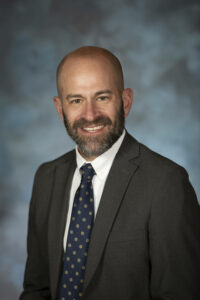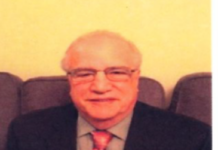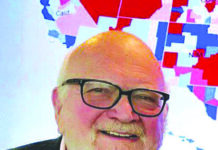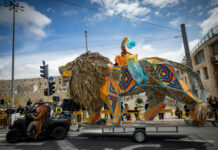
(Photo by Patrick Snook)
Rabbi Benjamin David
When I traveled to Israel with members of our synagogue, we were in awe of the resilience, courage and strength of our Israeli brothers and sisters. In the wake of an attack like no other, Israel had come together, united in its mission to survive, to move forward and to ensure that Israel remains a place of democracy, high Jewish ideals and safety.
We met with volunteers who had taken it upon themselves to feed and clothe members of the Israel Defense Forces. We met with rabbis who had committed themselves to restoring the well-being of their ailing communities. We saw sites of great tragedy transformed into gardens, colorful memorials and life.
We were amazed. We were heartbroken. We were inspired.
One image that will stay with me forever is that of the many households that still have their sukkah intact at kibbutzim along the Gaza border. At such places, it remains Oct. 7. It is still the fall festival of sukkot all these months later. Time has indeed stood still at such sites. These kibbutzim remain empty and silent, awaiting the eventual return of their surviving members.
The temporary structure of the sukkah, colorful and welcoming, offers a deeply powerful metaphor; it symbolizes after all the dire fragility of life. The sukkah reminds us to take nothing for granted, how — more times than we can count — our Jewish lives felt less than stable. We felt it in earnest on Oct. 7 and certainly have felt it ever since, as bigotry and antisemitism have resurfaced virtually everywhere in the world.
We might contrast Sukkot with Purim, the springtime holiday that starts this Saturday night. Purim is about revelry and joy. Purim is about life and color and exultation. We celebrate Queen Esther, who had the courage to stand up for herself and the Jewish people of Shushan. She speaks truth to power, advocating for tolerance even as doing so threatens her own future status and safety. We celebrate her sense of conviction and strong sense of character. She is a role model to all of us, especially our kids, and especially now.
If Sukkot is about the fragility of our lives, Purim is about taking charge of our lives. If Sukkot is about the many times we were so nearly annihilated, Purim is about our ability to endure — against all odds — time and again.
If Moses led our people through the ancient wilderness with humility and patience, Esther is a force for Jewish representation, Jewish pride and the right of the Jewish people to exist. Sukkot is gentle, bringing us to the beauty of nature, while Purim is loud, urging us to be forever proud of who we are.
Esther does her part as well to save lives and indeed we yearn for the protection of all human lives during this perilous time. We pray for reason and conscientiousness to take hold at last and for the fighting to come to an end.
Indeed, at this special time of year, in this wrought moment in history, we pray in the words of our beautiful tradition: “Let nation not lift up sword against nation, nor learn of war anymore.”
May this Purim be one of peace, one of health and one of great meaning for all of us.
Rabbi Benjamin David is the rabbi at Reform Congregation Keneseth Israel in Elkins Park.






